-
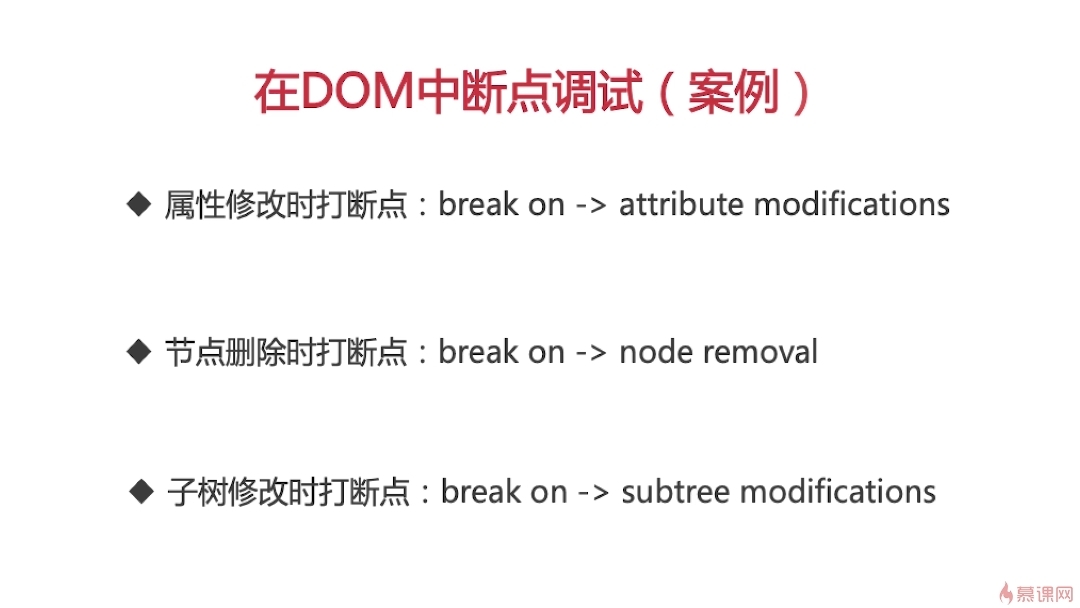 断点调试。。。。
查看全部
断点调试。。。。
查看全部 -
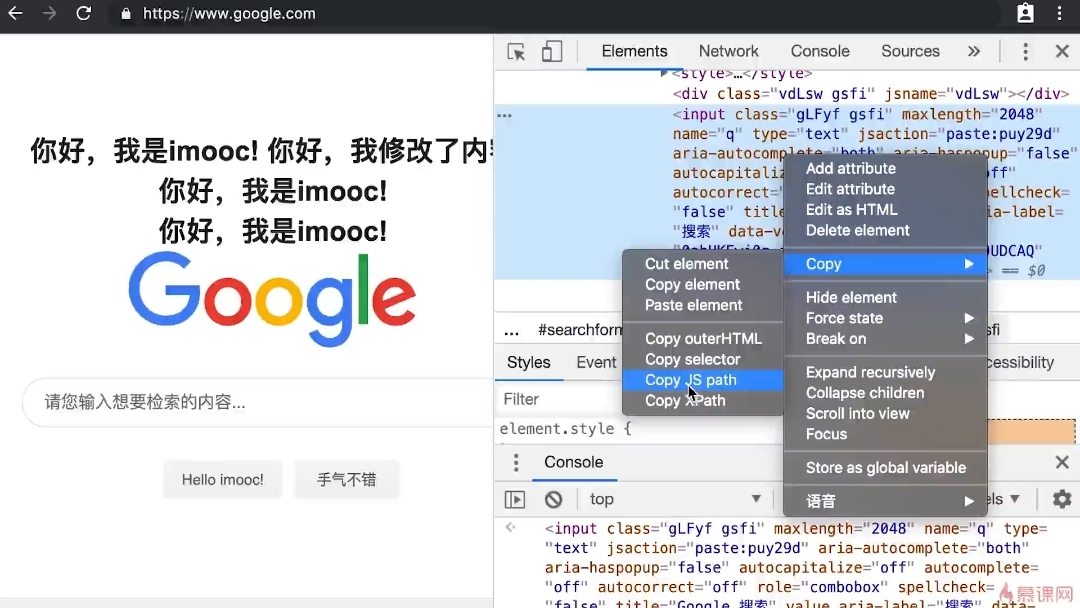 Js path 定位元素
查看全部
Js path 定位元素
查看全部 -
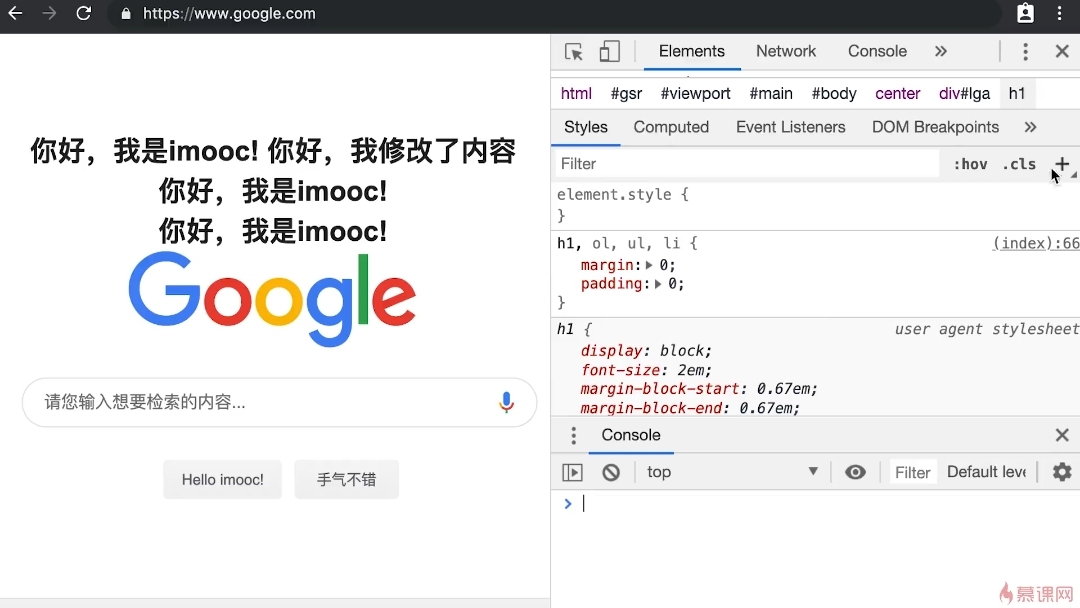 Element 面板下实用esc
Element 面板下实用esc
查看全部 -
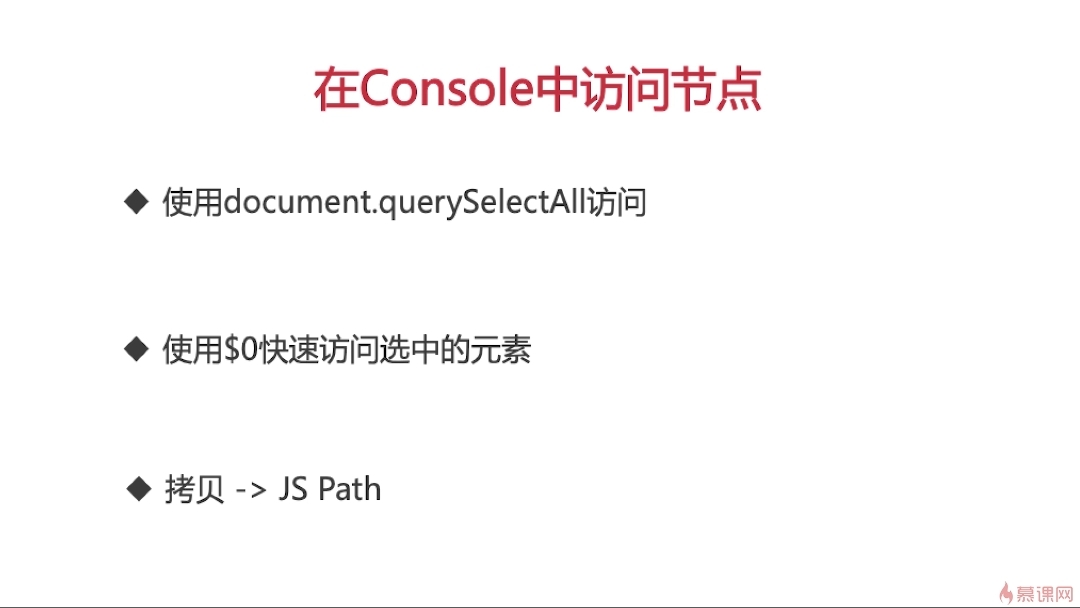 三种访问节点方式
查看全部
三种访问节点方式
查看全部 -
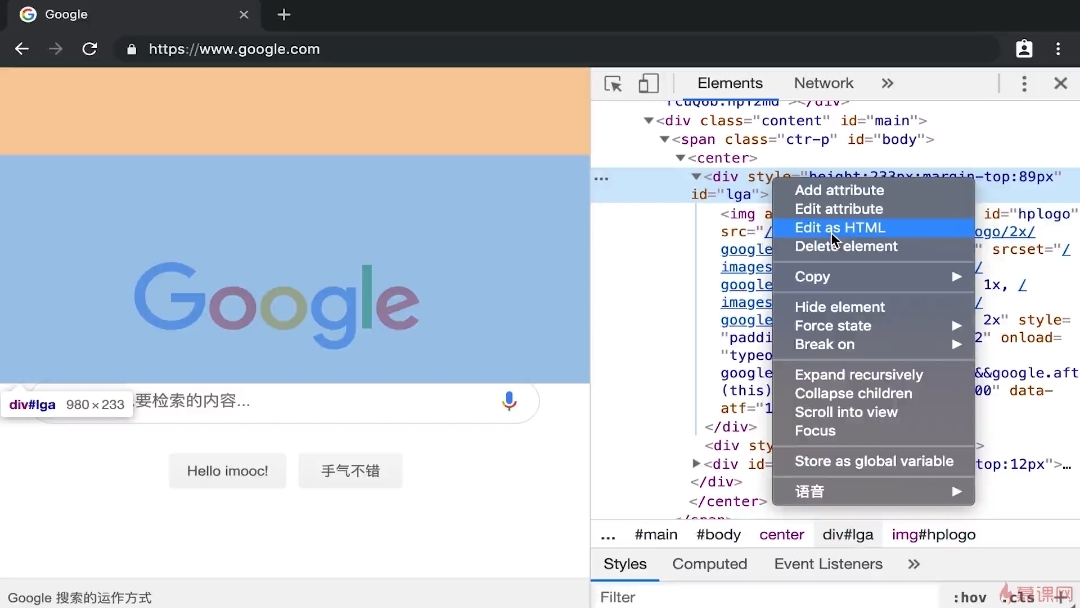 Edit html
查看全部
Edit html
查看全部 -
快捷键
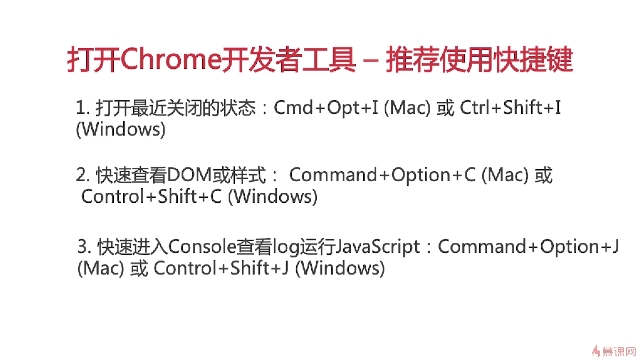 查看全部
查看全部 -
再编辑一下看看时间会不会变
查看全部 -
dhjshjhjshd
查看全部 -
Categories of Requirements
Functional Requirements
Things the product must do
Action the product must take
More detailed explanations
Scope of the Product – defines the boundaries and connections to other products
Functional and Data Requirements – Things the product must do and data manipulated by the functions
Functional Requirements Examples
The product must track recipes down the ingredient and quantity level
The recipes must be editable by an administrator
The product must display the orders that need to be completed
The product must display the recipes to make the orders
The product must track ingredients including their cost, vendors, and quantity in inventory
The product must interact with the current Point of Sale system
Non-Functional Requirements (Supplemental Requirements)
Properties or qualities the product must have
How the product will behave
More detailed explanations
Look and Feel Requirements – intended appearance
Usability Requirements – based on the intended users
Performance Requirements – how fast, big, accurate, safe, reliable, etc.
Operational Requirements – product’s intended operating environment
Maintainability and Portability Requirements – how changeable product must be
Security Requirements – security, confidentiality, and integrity of the product
Cultural and Political Requirements – human factors
Legal Requirements – conformance to applicable laws (remove credit card data in a certain time)
Non-Functional Requirement Examples
The product shall use the company colors and logos
The product shall be intuitive, even to first time users
The product shall only allow bakers and administrators to view recipes - - security
The product shall be easily upgraded for future business needs
The product shall be scalable to multiple bakery locations
Product Constraints
Global requirements
Purpose of the project
Users of a product
More detailed explanations
Purpose of the Product – reason for building the product
Client, Customer, and Stakeholders – people that interact with the product
Users of the Product – intended end-users and how they affect product usability
Requirements Constraints – limitations of the project and restrictions on design
Naming Conventions and Definitions – vocabulary of the product (should be consistent throughout the product)
Relevant Facts – outside influences that make a difference to this product
Assumptions – assumptions developers are making
Product Constraints Examples:
The product budget must not exceed $50,000
The product shall run on the company’s existing machines
Implementation of the product cannot interrupt daily business
The last 5 years of historical data needs to be made available in the product
SMART Requirements
So requirements has four phases. You have your elicitation phase, your analysis phase, specification and then validation. 在Elicitation阶段的时候,尽量做到SMART,但并不是说一定要完美,之后的阶段中可以再努力完善。
Specific
Overall
Clear, no ambiguity
Consistent, same terminology throughout
Simple
Questions to Ask
What?
Why?
Who?
Where?
Guidelines
Avoid “some”, “several”, “many”
State pronouns clearly “A calls B, it is updated”
Specify units all with numbers
Use pictures to clarify understanding
Provide explanations for terms like “transmitted”, “sent”, “downloaded”, and “processed”
Measurable
Overall
Measure progress towards goal
Indicators should be quantifiable
Questions to Ask
How much?
How many?
How will I know when it is accomplished?
Guidelines
Ensure measurable during requirement elicitation
Validate unequivocal success can be proven with that requirement
Determine tests that will need to be used to verify the requirement was met
Attainable
Overall
Validate requirement is feasible
Within technical expertise
Within scope of project
Within budget
Questions to Ask
Is there a theoretical solution to the problem?
Has it been done before?
Are there any known constraints (environmental, physical, etc.)?
Guidelines
Determine who has responsibility for satisfying the requirement and validate they can deliver
Ensure sufficient time, resources, and budget
Reuse pieces from previous projects
Reasonable
Overall
Validate the effort is worth the requirement
Questions to Ask
Is this worthwhile? (ROI)
Is the timing right?(假如同时期别的project也有这个requirement,那其实可以等等看,吸取经验教训)
Does this match our other efforts/needs?
Guidelines
Run all requirements through a ‘sanity check’
Ensure the requirement makes sense in context
Traceable
Overall
Trace requirement through design, implementation, and testing(不同企业的要求不同,但作为BA至少要让它traceable)
Questions to Ask
Can I ensure this requirement has been met in the design solution?
Can I ensure this requirement has been met in the implementation?
Can I ensure this requirement has been met during testing?
Guidelines
Requirements should include(以下这些信息都要尽量包括)
Originators
Assumptions
Business justifications
Dependencies on other requirements
Importance
Tips for Producing Valid Requirements
Should use the word shall
Only one shall per requirement
Written in short, simple sentences
Consistent terminology
Stated positively
Accompanied by notes and comments to support and clarify
Stated imperatively (this is what will happen, shall be done, not could/should happen, you're stating it very clear,positively)
Don’t use will and should
Translations for Requirement Verbiage
Or – Select one of the options (二选一)
Can, should – Expresses desire or suggestion instead of requirement
Must – 100% reliability
Are, is, will – Descriptive part to lead into the requirement
Support, and/or – Confusing (要写清楚具体如何support,比如说pass data)
But not limited to, etc – Incomplete requirement/thought
Shall – dictates specification and functional capability
Terms to Avoid
Adequate(具体的number或者衡量方法)
Approximately
Better than
Comparison
Easy
Maintainable(具体到比如说run an upgrade through every month,专人去打扫?)
Maximize
Minimize
Normally
Optimize
Quality product
Quick
Rapid
Substantial
Sufficient
Timely
Introduction to Requirement Analysis
Phases of the Requirements Process
The requirement elicitation is really all about pulling the requirements out, out of documentation, out of stakeholders, through various different techniques
Requirement Elicitation
You have all the requirements, as well as taking those requirements and spinning them and modeling them in a way that both business and technical users will draw the same conclusions from them)
Requirement Analysis
Categorizing requirements, determining which ones are functional, nonfunctional, or supplemental and constraints, and working through to set attributes for the different requirements that you've determined, as well as set priorities for those requirements.
Requirement Specification
The three levels of approval: the business, the technical approval, and the executive sponsor or a steering committee approval of the requirements.
Requirements Approval
Business Rules
What are Business Rules?
Business Rules vs Business Requirements
Best Practices
Business Rules Expained
Definition:
A business rule is a rule that defines or constrains some aspect of business and always resolves to either true or false.
( it's either saying this is how we're going to do business, and this is the rules we're gonna follow, or this is how we are not going to do business, and we're not gonna follow this.)
(黑白分明,能做什么,不能做什么)
Purpose:
Business rules are intended to assert business structure or to control or influence the behavior of the business.
Business Rules Examples
Entered email addresses must appear valid (contain @ and .)
Each class must have at least one instructor
Customers must have a valid driver’s license to rent a vehicle
A quote must be completed prior to an invoice being generated
Business Rules vs Business Requirements
Rule:
Entered email addresses must appear valid (contain @, then later.)
Possible Requirements:
Capability to enter email address
Alert agent when the email doesn’t appear to be valid
Allow for correction of email if invalid email format is entered
Rule:
Each course must have at least one instructor
Possible Requirements:
Capability for Dean to assign instructor to course
Course registration cannot be opened until an instructor is assigned
Rule:
Customers must have a valid driver’s license to rent a vehicle
Possible Requirements:
Employee to inspect driver’s license
Ability for employee to validate driver’s license
Rule:
A quote must be completed prior to an invoice being generated
Possible Requirements:
Capability to enter a quote
Details from quote must automatically flow to the invoice
Ability to tie the quote and invoices together for reporting
Business Rules Best Practices
When documenting business rules, keep it simple
Business requirements are used to comply with business rules (建议写在同一个文档里,不要分开写又来回reference)
Each business rule may need multiple requirements
Changes can cause major constraints down the road
**Business rules should not be changed (**whatever we're building or doing our processes, our systems, our applications are whatever you're working on this project for, your business rules that you're defining are really the things that are making up the architecture and the foundation of that particular project of that deliverable.)
查看全部 -
在DOM中断点调试:
属性修改时打断点:break on -> attribute modifications
节点删除时打断点:break on -> node removal
子树修改时打断点:break on -> subtree modifications
查看全部 -
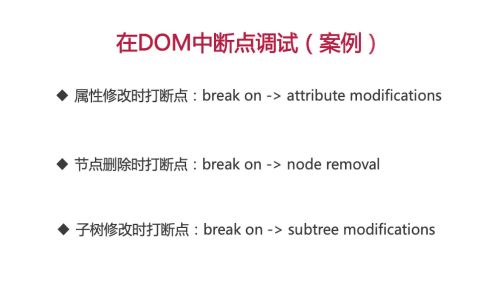
dom断点
查看全部 -
打开浏览器开发工作快捷方式
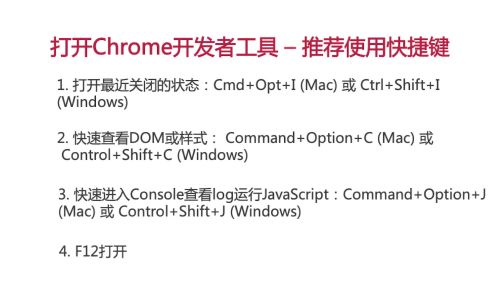 查看全部
查看全部 -
呼出菜单 ctrl+shift + p
show sensors 模拟位置信息、方向
show network condition 禁用缓存 模拟网络状况 模拟代理字符串等
查看全部 -
呼出菜单 ctrl+shift + p
show sensors 模拟位置信息、方向
show network condition 禁用缓存 模拟网络状况 模拟代理字符串等
查看全部 -
呼出菜单 ctrl+shift + p
show sensors 模拟地理位置信息、方向
show network condition 禁用缓存 模拟网络状况 模拟代理字符串等
查看全部 -
呼出菜单 ctrl+shift + p
show sensors 模拟地理位置信息、方向
show network condition 禁用缓存 模拟网络状况 模拟user agent代理字符串等
查看全部 -
呼出传感器菜单ctrl+shift + p
show sensors 模拟地理位置信息、方向
show network condition 禁用缓存 模拟网络状况 模拟user agent代理字符串等
查看全部 -
呼出传感器菜单ctrl+shift + p
show sensors 模拟地理位置信息、方向
show network condition 禁用缓存 模拟网络状况 模拟user agent代理字符串等
查看全部 -
1.

打开、关闭network加载日志
清除所有加载请求
页面加载过程的截图
filter 过滤 加载url的name
search 检索 请求体、请求头都可以检索
详细、简略展示请求信息
show overview 展示页面加载的概览
preserve log 持久记住页面的请求
disable cache 禁用缓存
offline 模拟离线状态
no throttling 模拟4g 5g网速状态
2.

请求头 预览response返回的结果 response timing:利于性能优化
查看全部 -
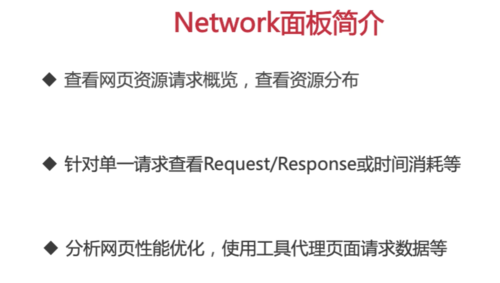
windows使用Ctrl+Shift+r来清除缓存重载页面
查看全部 -
snippets:载入一些库
查看全部
举报







